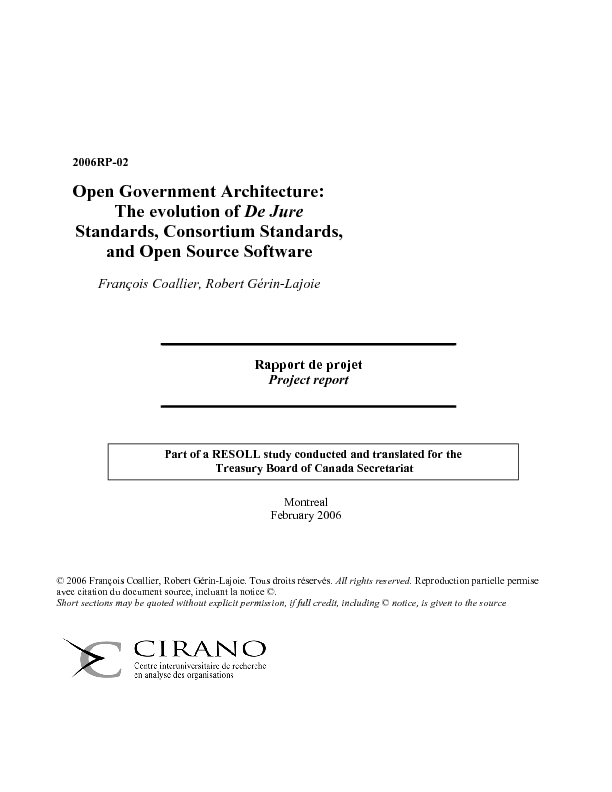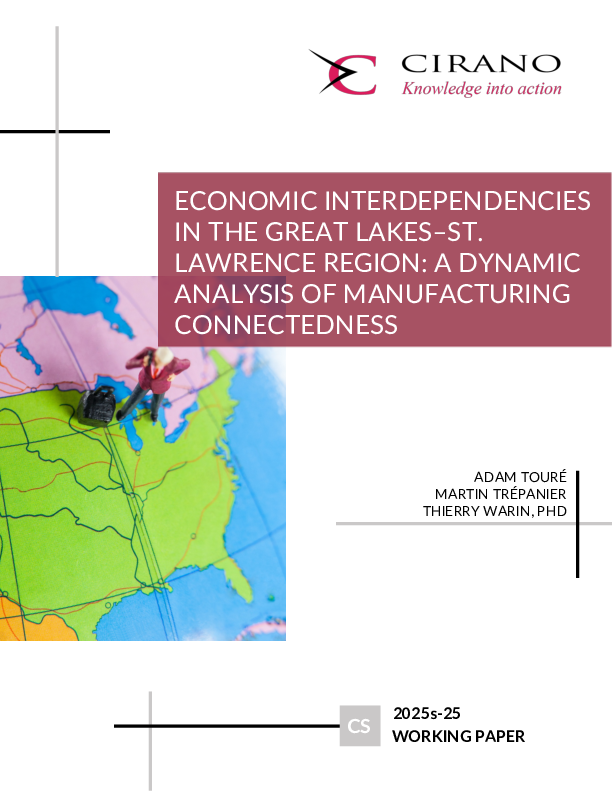Open Government Architecture: The evolution of De Jure Standards, Consortium Standards, and Open Source Software
Conducted for the Treasury Board of Québec, this study seeks to present recent contributions to the evolution, within an enterprise architecture context, of de jure and de facto standards by various actors in the milieu, industrial consortia, and international standardization committees active in open source software.
[ - ]
In order to be able to achieve its goals of delivering services to citizens and society, the Government of Québec must integrate its computer systems to create a service oriented open architecture.
Following in the footsteps of various other governments and the European Community, such an integration will require elaboration of an interoperability framework, i.e. a structured set of de jure standards, de facto standards, specifications, and policies allowing computer systems to interoperate.
Thus, we recommend that the Government of Québec:
- Pursue its endeavours to elaborate an interoperability framework for its computer systems that is based on open de jure and de facto standards. This framework should not only reflect the criteria enumerated in this study and apply to internal computer systems, but it should also extend to Web services supplied to organizations outside of the government. This framework should explicitly prioritize open source de jure and de facto standards and include a policy covering free software. The interoperability framework should initially draw on that of the state of Massachusetts. In the medium term, is should be as comprehensive as that of the British government.
- Integrate this interoperability framework into its enterprise architecture.
- Publish this interoperability framework with its enterprise architecture.
- Specify this interoperability framework in its calls for tenders.
- Elaborate a policy of compliance with this framework for all new applications.




